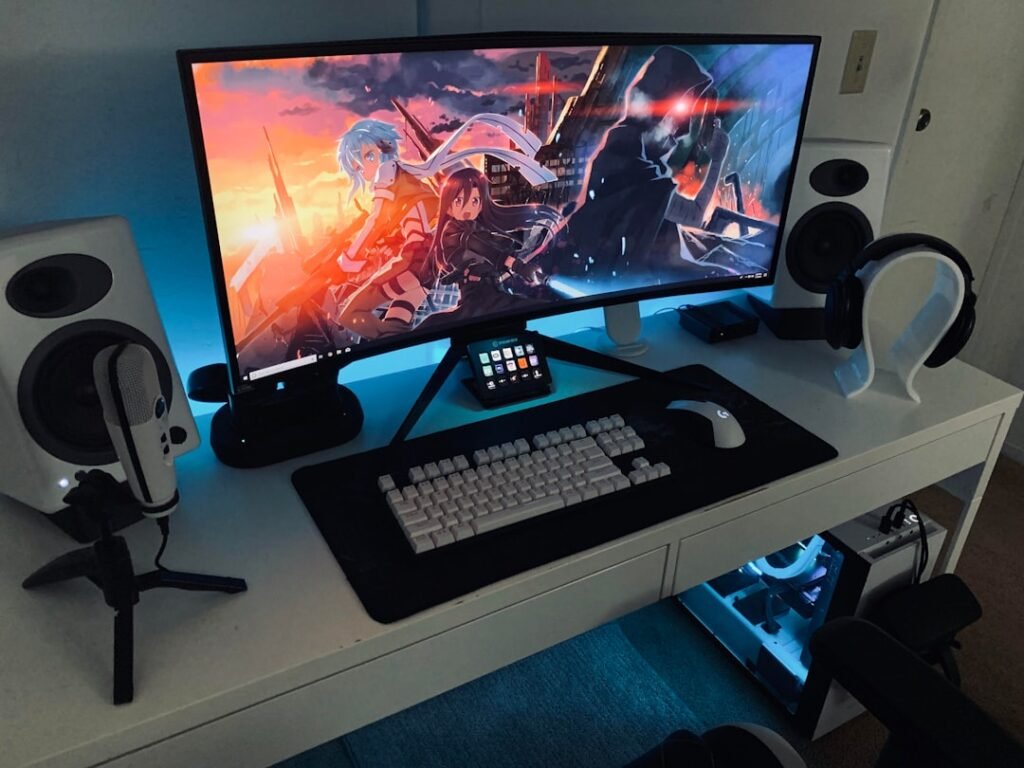Now Reading: How to Analyze Professional Gameplay: Learning from the Pros
-
01
How to Analyze Professional Gameplay: Learning from the Pros
How to Analyze Professional Gameplay: Learning from the Pros

As a passionate gamer, I have always been fascinated by the intricacies of professional gameplay. The way top-tier players maneuver through their games, making split-second decisions that can alter the course of a match, is nothing short of mesmerizing. Analyzing professional gameplay has become an essential part of my journey as a player, allowing me to glean insights that elevate my own skills.
By delving into the strategies, tactics, and mindsets of the best in the field, I can better understand what it takes to compete at a high level. In this exploration, I aim to dissect various elements of professional gameplay, from individual performances to team dynamics. Each aspect contributes to the overall success of a team and can provide valuable lessons for aspiring players like myself.
By immersing myself in the world of professional gaming analysis, I hope to uncover the secrets behind the success of elite players and apply those lessons to my own gameplay.
Key Takeaways
- Analyzing professional gameplay provides valuable insights into high-level strategies and tactics used in competitive gaming.
- Understanding the importance of analyzing professional gameplay can help players improve their own skills and decision-making abilities.
- Identifying key strategies and tactics used by professionals can be applied to enhance individual and team performance in gaming.
- Breaking down individual player performances allows for a deeper understanding of the skills and techniques that contribute to success in professional gameplay.
- Recognizing team dynamics and communication is crucial for understanding how successful teams coordinate and work together to achieve their goals in competitive gaming.
Understanding the Importance of Analyzing Professional Gameplay
Deeper Appreciation for the Game
Moreover, analyzing pro gameplay fosters a deeper appreciation for the game itself. I find that understanding the thought processes behind each move and decision enriches my overall gaming experience. It transforms gameplay from mere entertainment into a complex tapestry of strategy and skill.
Fueling the Desire to Improve
This appreciation fuels my desire to learn and grow as a player, pushing me to strive for excellence in every match I play.
Identifying Key Strategies and Tactics Used by Professionals

One of the first steps in analyzing professional gameplay is identifying the key strategies and tactics employed by top players. I often find myself captivated by their ability to execute intricate plays with precision and timing. Whether it’s a well-coordinated team fight or a clever bait-and-switch maneuver, these strategies are often the result of extensive practice and deep understanding of the game mechanics.
As I study these professionals, I notice recurring themes in their gameplay. For instance, many top players prioritize map control and vision, ensuring they have information on enemy movements and objectives. This strategic foresight allows them to make informed decisions that can turn the tide of a match.
By recognizing these patterns, I can begin to implement similar tactics in my own games, enhancing my strategic thinking and overall performance.
Breaking Down Individual Player Performances
In addition to overarching strategies, analyzing individual player performances is crucial for understanding what makes a player exceptional. Each professional brings their unique flair and skill set to the game, which can be dissected to reveal their strengths and weaknesses. I often find myself focusing on specific players during matches, observing how they handle pressure situations or adapt to unexpected challenges.
For example, watching a skilled marksman navigate through enemy lines while maintaining optimal positioning teaches me about the importance of awareness and timing. These insights not only inspire me but also provide concrete examples of how to improve my own gameplay.
Recognizing Team Dynamics and Communication
Team dynamics play a pivotal role in professional gameplay, and understanding this aspect has been enlightening for me as a player. The synergy between teammates can often be the deciding factor in a match’s outcome. I’ve observed how effective communication can lead to coordinated plays that capitalize on opponents’ weaknesses.
This realization has prompted me to focus on improving my own communication skills within my team. Moreover, recognizing how teams adapt their strategies based on their composition and opponents has been eye-opening. Each player has a specific role that contributes to the team’s overall success, and understanding these roles helps me appreciate the complexity of teamwork in gaming.
By analyzing how professionals interact and support one another, I can better understand how to foster collaboration within my own team.
Analyzing Draft and Team Composition

The Importance of Drafting in Professional Gameplay Analysis
Drafting is a crucial aspect of professional gameplay analysis that is often overlooked by casual players. The choices made during this phase can set the tone for the entire match and provide valuable insights into strategic planning that extends beyond individual skill.
### Understanding Synergy and Counter-Picks
By studying how professionals select their champions or heroes based on synergy and counter-picks, I gain insight into the importance of strategic planning that goes into drafting. This helps me understand how successful teams prioritize flexibility in their compositions, allowing them to adapt to different situations throughout the match.
### Adapting to Situations
This adaptability is something I strive to incorporate into my own gameplay.
This approach has helped me improve my overall gameplay and make better decisions during the drafting phase.
Examining Decision Making and Shotcalling
Decision-making is at the heart of every successful professional player’s strategy. As I analyze gameplay footage, I pay close attention to how players make critical decisions under pressure. The ability to assess a situation quickly and choose the best course of action is a skill that separates elite players from the rest.
Observing these moments has taught me about the importance of maintaining composure and clarity during intense situations. Shotcalling is another vital component of decision-making in team-based games. The shotcaller’s role is to guide teammates through complex scenarios, ensuring everyone is on the same page.
By studying how professionals communicate their strategies and adapt on-the-fly, I’ve come to appreciate the value of leadership within a team setting. This understanding encourages me to take initiative in my own games, whether by calling out objectives or suggesting strategies based on our team composition.
Studying Map Control and Objective Prioritization
Map control is an essential aspect of professional gameplay that I’ve come to recognize as a game-changer. The way top players navigate the map, securing vision and objectives, often dictates the flow of the match. By analyzing how professionals prioritize objectives such as towers, dragons, or other key points on the map, I’ve learned about the importance of strategic positioning and timing.
I find that effective map control not only provides valuable information but also creates opportunities for advantageous plays. Watching professionals coordinate their movements to secure objectives while denying their opponents similar opportunities has inspired me to adopt a more strategic mindset in my own games. By prioritizing map control and objective management, I can contribute more effectively to my team’s success.
Observing Adaptability and Flexibility in Gameplay
Adaptability is a hallmark of successful professional players, and it’s an aspect I strive to emulate in my own gameplay. The ability to adjust strategies based on evolving circumstances is crucial in competitive gaming. As I analyze matches, I pay close attention to how players pivot their tactics when faced with unexpected challenges or setbacks.
This flexibility often manifests in various ways—whether it’s changing playstyles mid-game or adjusting item builds based on opponents’ strengths. Observing these moments has taught me that rigidity can be detrimental in competitive play; instead, embracing adaptability allows for more dynamic gameplay. By incorporating this mindset into my own approach, I can better respond to changing situations and enhance my overall performance.
Learning from Mistakes and Losses
Every professional player experiences losses and mistakes; what sets them apart is their ability to learn from these experiences. Analyzing post-match reviews or interviews with players has shown me how they reflect on their performances, identifying areas for improvement rather than dwelling on failures. This growth mindset is something I aim to adopt in my own gaming journey.
I’ve found that reviewing my own gameplay after matches—whether through replays or discussions with teammates—can provide invaluable insights into my decision-making processes and execution. By acknowledging mistakes without fear of judgment, I can focus on developing strategies for improvement rather than becoming discouraged by setbacks.
Applying Professional Strategies to Improve Personal Gameplay
Ultimately, analyzing professional gameplay serves as a powerful tool for personal growth as a player. By synthesizing all the insights gained from studying strategies, individual performances, team dynamics, and decision-making processes, I can create a framework for improvement in my own gameplay. Each lesson learned from professionals becomes a stepping stone toward enhancing my skills.
As I continue this journey of analysis and self-improvement, I remain committed to applying what I’ve learned from professionals in every match I play. Whether it’s refining my communication skills with teammates or adopting new strategies based on successful plays observed in high-level matches, each step brings me closer to becoming a better player. Through dedication and continuous learning from those at the top of their game, I am excited about the potential for growth that lies ahead in my gaming journey.
If you’re interested in learning more about how professional gameplay can evoke emotional responses, check out this article on games that tell emotional stories. Understanding the impact of storytelling in games can provide valuable insights into analyzing professional gameplay and learning from the pros.
FAQs
What is professional gameplay analysis?
Professional gameplay analysis is the process of studying and dissecting the strategies, decision-making, and execution of professional players in a specific game. It involves observing and understanding the tactics and techniques used by professionals to improve one’s own gameplay.
Why is it important to analyze professional gameplay?
Analyzing professional gameplay provides valuable insights into high-level strategies, tactics, and decision-making processes. It allows players to learn from the best in the game and apply those learnings to their own gameplay, ultimately improving their skills and performance.
What are the key elements to look for when analyzing professional gameplay?
When analyzing professional gameplay, it’s important to pay attention to factors such as positioning, map awareness, communication, teamwork, individual mechanics, decision-making, and overall game sense. These elements contribute to a player’s success at the professional level.
How can one effectively analyze professional gameplay?
To effectively analyze professional gameplay, one can watch professional matches, tournaments, or streams, paying close attention to the players’ movements, decision-making, and overall strategies. Taking notes, pausing to analyze specific moments, and discussing the gameplay with others can also enhance the analysis process.
What are the benefits of learning from professional gameplay analysis?
Learning from professional gameplay analysis can help players improve their skills, gain a deeper understanding of the game, and adapt high-level strategies to their own gameplay. It can also inspire creativity and innovation in approaching the game.



























